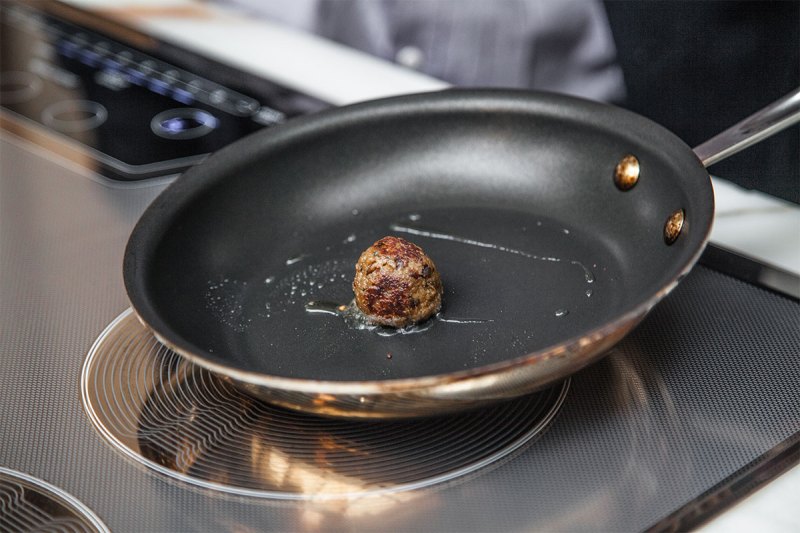There are a lot of good reasons to be a vegetarian: eating meat can cause health problems, raising animals for meat contributes to climate change, and factory farming has heinous practices.
But, man, does meat taste good. If only we could have meat without the whole killing animals and destroying the planet thing.
Memphis Meats says we can.
This revolutionary company is creating meat, real bonafide meat– not plant-based substitutes– from animal cells. Founded by cardiologist, Uma Valeti, stem cell biologist Nicholas Genovese, and biomedical engineer, Will Clem, the company creates meat that looks, cooks, tastes, smells, and feels just like traditionally-grown meat without the death, animal suffering, and earth-destroying nonsense.

To make what some are calling “clean meat,” the geniuses behind Memphis Meats take cells from the (alive-and-gets-to-stay-that-way) animal using a biopsy– easy as that. Then, using proprietary science it’s likely few of us would understand anyway, they’re able to grow the meat.
This technology could save the world. Here’s scientists’ beef with beef: animals create methane. To supply America, the leading consumer of meat, with their almost 250 grams per day (significantly more than we should be eating, by the way), you need a lot of cows. A lot of cows create a lot of methane. And two-thirds of all ammonia. To put it in some concrete numbers, Britain has about ten million cows, just cows alone– not counting goats or sheep. Those ten million cows are responsible for a whopping three percent of Britain’s greenhouse gas emissions. Since we all need a healthy, functioning planet, these numbers really put that cheeseburger into perspective.
Memphis Meats is drastically reducing the emissions produced by the meat industry. By creating meat from cells, they eliminate the need for animals who grow up to eat vast amounts, possibly raised on antibiotics and hormones, and then cloud the atmosphere with methane, only to be eventually slaughtered. This translates into cutting emissions by 90 percent. That has massive implications for fighting global warming, since the contribution of the agriculture industry is rarely discussed or addressed.
Plus, Memphis Meats will be healthier. No more need to worry about Mad Cow Disease or Swine Flu. And, because there’s no need to slaughter an animal, the chances of the meat becoming contaminated with salmonella or E. coli thanks to fecal matter are radically reduced. Factory farming relies on antibiotics and hormones to keep animals, in tight spaces, healthy and fat. However, that method can lead to unhealthy consumers and antibiotic-resistant bacteria. No need for any of that with Memphis Meats.
Right now, they’re developing all-American favorites like burgers, hot dogs, sausage, and meatballs, but more options are in the works. Speaking of meatballs, watch this video of their Memphis Meatball being cooked by a chef. It’s impossible to tell that this delicious sphere of meaty goodness didn’t come straight from a dead animal. But knowing it didn’t makes it that much more delicious.
Unfortunately, you can’t go out and buy some delicious, humane, earth-friendly Memphis Meat just yet– you can, however, contribute to their Indiegogo campaign to speed that glorious day along.
The time is coming when you can have a truly guilt-free burger and that is a beautiful thing.



